Amulet thrives by getting a crowd to move. Inspired by raves, dance music is the language that the Portland producer-singer knows best—that’s the sound they’ve tapped into on their sophomore album, TONGUE OUT SELFIE. Across its runtime, glitchy beats flicker from one ear to the other. They vocalise their words like a stream-of-consciousness diary under digital filters. Acoustic textures shimmer, with violin and sax samples cutting through the hyperpop-laced electronics.
Overall, Amulet paints a portrait of their life as a danceable, chaotic sonic collage, drawing upon the momentum of a topsy-turvy carnival to create a joy ride. Before the release of the long-awaited album, I spoke with Amulet to learn more about its themes, how playing live has influenced their artistry, and the Portland rave scene they’re a part of.
What’s the narrative in TONGUE OUT SELFIE? The press release describes it as written from the “perspective of a 24/7 carnival worker, a groundskeeper by night and performer by day,” but are there real experiences being told?
Amulet: I feel like it’s mostly real, but also dramatized in a way. It’s expanded a little bit past myself, but it’s very much real, about my real life, and what’s going on in it.
The way you’ve produced the album almost lends itself to that drama. It sounds like glitch pop; there are lots of layers, and your vocals are distorted. Was it chaotic by design?
A: Yeah, definitely. The landscape of a carnival was chaotic enough for me to have an excuse to go in any direction I wanted, and create cohesion with what I was going for. It’s pretty chaotic, I guess, but I think music is moving in that direction.
It’s interesting to hear that your first foray into music was acoustic guitar-heavy, but you eventually started making electronic music. How did that come about? I read somewhere that it was because your friends introduced you to raves.
A: Well, I liked electronic music when I was writing songs on guitar, but I didn’t have a computer. So, I didn’t get into it until later than others—I know the kids are starting pretty young now, and my friend started young. He was hearing me humming and singing at work, then he was like, “Oh, we should try to make music.” Looking at a DAW for the first time, which was Fruity Loops, I didn’t understand it for a while … I wanted to write little melodies in there, but it took me a while to get my own computer and software to learn. As soon as I saw a DAW, I wanted in.
How does this new album, TONGUE OUT SELFIE, compare to your previous one, PARTY HOUSE SOLACE? It’s been a while since its release.
A: With PARTY HOUSE SOLACE, I hadn’t played very many shows, or any shows at all. I think I learned from playing shows that I wanted certain things in my music that weren’t there before—dancing and stuff like that. Also, where I am is different. I think this album is a lot more serious, even though it’s called TONGUE OUT SELFIE, which is a play on that. It’s like trying to be playful when it’s very serious at the same time. So, I’d say PARTY HOUSE SOLACE is more bubblegummy, but TONGUE OUT SELFIE is more blue and cold.
You also collaborated with more people on this one, such as friends and even peers in Portland’s scene. How was it different bringing people into what you’re doing?
A: What I was saying about playing shows and making this different, I think that gave me the confidence to talk to people more and ask people to collaborate. I realized, “Oh, maybe some people are actually interested in this,” so I started talking to friends who play instruments because I wanted to have some analog aspects. I also knew that other people can play those instruments better than I can, and I didn’t have to do everything myself. I think that’s an isolating approach to take towards this type of thing. So, I wanted to get other people involved to talk to and make music with. That’s something I think I’ll just keep doing, it’s really fun—getting stems in and getting really excited. I recorded the cello with the cellist, Alice Does Computer Music, but the other ones were stems coming in over the internet.
I’m curious about the live performance aspect of this experimental electronic music. I’ve seen footage on your Instagram, and there’s a lot of energy with you playing to big, young crowds. I’m from Melbourne—a lot is happening here—but there’s that action here too. What’s the scene in Portland like?
A: It’s pretty lively, I would say. There’s also a lot of social justice energy in the rave scene here that I’m a part of. I think it’s mostly queer people and femmes that I’m playing shows with in general, because I don’t really get booked by men usually, that’s very rare. I think that makes for safer rave experiences—I feel I’ve had pretty safe experiences anyway, which is dope. People are always trying to take care of each other at shows too.
I think it’s experimental because queer people are often living and expressing differently. Like, not all the time, but often, and I think that’s a big part of Portland. And some of us are all bouncing off of each other. I’ve been playing shows here for maybe four years now, and we know and inspire each other.
It’s nice that you can feed off each other’s energy in an open-minded space. Does playing live, seeing crowds dance to your music in real time, help inspire you?
A: Yeah, definitely. It’s nice to try out songs in crowds, to see how they go over and how they feel for me. Playing my music is different in my headphones than when I’m in front of people and it’s on a big speaker—you learn a lot from how you feel and how the crowd feels. Playing shows has taught me, like … through other people, more than just listening to their music, we talk to each other about music, and we learn tricks. Like, “I didn’t know how to do that,” just learning different methods from each other. Sometimes it’s just online, though. A lot of times, it’s just chatting online with each other because we’re in a group chat for a show. It’s not always in real life.
Yeah, the internet is the throughline with all of that. In Melbourne’s indie scenes, there’s lots of rock bands, electronic shows, and visual art and performance collectives, but it’s all made possible by the internet. It’s cool to hear that’s happening elsewhere.
A: I’ve done some touring, so I know people are doing it in the big cities. There’s communities of people trying to put things on that aren’t commercial, like underground, not at the big venues.
The songs “angelology” and “feel so crazy” were the album’s first singles—why did you release those as teasers?
A: I wanted to share “feel so crazy” because it’s really different from anything else I’ve done. It’s not like a club banger or anything, but more of a slow song. It’s majestic but kind of like a marching song, a triumph almost. It’s also really vulnerable, so I wanted to put it out because I felt people should expect some range from the album. And then “angelology” is the dance banger track—more people seemed to pay attention to that one, but it makes sense why.
There’s also your album launch show on the release date, November 15. What are you looking forward to with that? You must feel good that the album’s done.
A: Yeah, I’m excited about this show. Like, part of me doesn’t want to plan; I want to take a break because I just finished the album, but at the same time, I’m getting all my friends involved. One of my internet friends from California is going to come, and it’s crazy because we’ve been friends for a long time online, but have never met in person. I have other friends on the lineup as well. I already said I’m really excited, but it’s gonna be fun. I just want it to be so celebratory, kind of like a party.
TONGUE OUT SELFIE is out now on Bandcamp. You can follow Amulet for updates over on Instagram! Cover photo by Kameko Lashlee Gaul



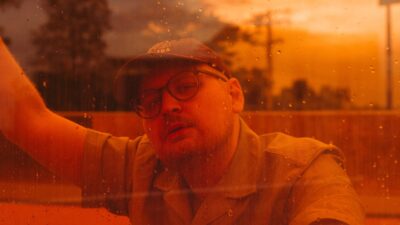
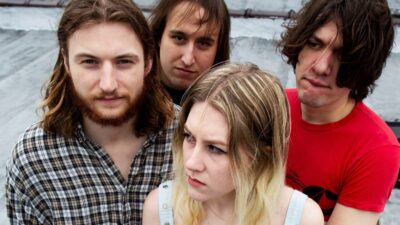

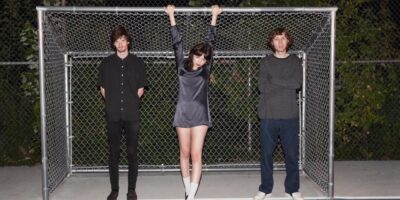

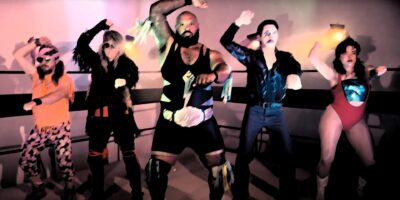

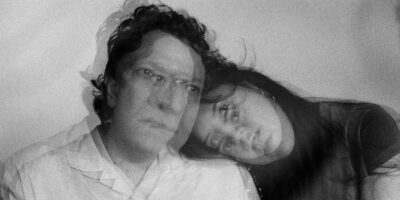





Comments